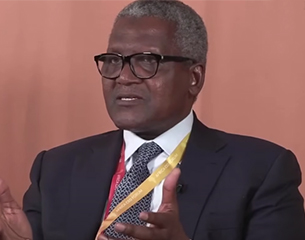- Channel : VIP Crossing
The Nigerian government has taken a significant step towards energy independence by entering into a historic partnership with billionaire Aliko Dangote. This public-private partnership aims to develop Dangote’s refinery, the largest in Africa, and reduce the country’s reliance on imported refined petroleum products.
To lessen its dependence on imported petroleum products and strengthen its energy autonomy, the Nigerian government, through the Nigerian National Petroleum Company (NNPC), has implemented an ambitious plan to support Dangote’s refinery. This plan includes selling crude oil in naira to the refinery, accelerating domestic production of refined products, and granting Dangote 15 crude oil cargoes per year at a fixed exchange rate. These measures, in addition to stimulating the local economy and creating new jobs, are expected to stabilize fuel prices at the pump and reduce the country’s vulnerability to fluctuations in global oil prices.
These measures are part of a broader effort to strengthen Nigeria’s energy sovereignty and diversify its economy. The expected benefits are numerous:
- Reducing the energy bill: By decreasing its imports of refined products, Nigeria can achieve significant savings and free up resources for other investments.
- Stabilizing pump prices: Ending the dependence on fluctuating oil prices on international markets should stabilize fuel prices and reduce inflation.
- Job creation: The development of Dangote’s refinery and similar projects will create numerous jobs and stimulate economic growth.
- Reducing pollution: By promoting domestic production, Nigeria can better control the quality of refined products and reduce pollutant emissions.
Challenges remain
While the outlook is promising, several challenges remain:
- Product quality: Questions have been raised about the quality of products refined by Dangote’s refinery, particularly diesel.
- Corporate governance: Relations between the Nigerian government and Aliko Dangote are complex and marked by tensions, which could complicate the implementation of this agreement.
- International competition: The oil market is highly competitive, and Nigerian refineries will face pressure from international players.
A significant but insufficient step
The Nigerian government’s decision marks a significant step in transforming the country’s energy sector. However, the success of this project will depend on the ability of all stakeholders to overcome challenges and implement a coherent and sustainable energy policy. It remains to be seen whether the benefits of this agreement will be quickly felt by the Nigerian people."



















